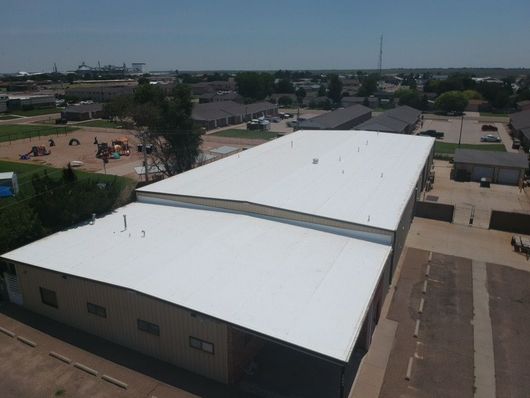For any commercial property, the roof is essential. It not only shields your building from the elements but can also help lower repair expenses and boost energy efficiency. In this guide, we’ll delve into the best commercial roofing materials and explain why investing in quality roofing is key to ensuring the success of your property.
How to Identify Your Commercial Roofing Needs
Commercial roofs have unique requirements compared to residential roofs. Factors such as climate, building type, and business operations play a major role in determining the best roofing system. Whether you’re managing a warehouse, office, or retail space, identifying your specific needs will help you select the right roof for your property.
Choosing the Right Materials for Your Commercial Roof
Several roofing materials are commonly used in commercial buildings. The best choice depends on your specific needs and budget. Each material offers distinct advantages, ensuring the right option for your business.
1. Metal Roofing
Metal roofs are a top choice for commercial buildings due to their durability and energy efficiency. Steel and aluminum are the most common materials used, offering resistance to harsh weather conditions and excellent leak prevention. The reflective nature of metal roofs helps keep buildings cooler, lowering energy bills.
Flat Roof Systems
Flat roofs are often found on commercial properties due to their cost-effectiveness and ease of installation. These roofs are ideal for buildings with modern architectural designs. Materials like TPO, EPDM, or PVC are commonly used for flat roofing systems, offering great waterproofing and insulation properties. Regular maintenance and proper drainage are key to extending the life of a flat roof.
Shingle Roofs for Commercial Properties
Shingle roofing is not as common for large commercial buildings, but it can be a good choice for smaller properties or those that need a traditional look. Asphalt shingles are affordable and come in various colors and styles, though they don't offer the same longevity as metal or flat roofs.
Roof Installation Process and Maintenance Tips
Once you've selected the right material for your commercial roof, the next step is installation. Hiring an experienced, licensed roofing contractor ensures the job is done correctly. Proper installation is crucial for preventing leaks and maximizing the lifespan of your roof.
Ongoing maintenance is critical to keeping your roof in top shape. Regular inspections—especially after severe weather—are recommended. Check for any damage like missing shingles, cracks, or water pooling. Clean gutters and remove debris regularly to prevent potential long-term issues.

How Investing in a Quality Roof Protects Your Business
A good-quality roof is a sound investment. It offers protection from leaks that can cause expensive damage to your building and inventory. It also boosts energy efficiency, making your property more sustainable and lowering costs. A well-maintained roof can even increase your building's value and prevent costly repairs in the future.
Final Thoughts: Selecting the Best Commercial Roofer
Choosing the right roofing contractor is just as important as selecting the best materials. Look for a licensed, experienced roofer who understands commercial properties and can help you select the best solution based on your business needs. A great contractor will also guide you through the installation and maintenance process to keep your roof in top shape for years to come.
Are you ready to upgrade your commercial roof? Contact us today to learn more about our roofing solutions and get a free consultation!
#CommercialRoofing #RoofingMaterials #BusinessProtection #MetalRoofing #FlatRoofing #RoofInstallation #EnergyEfficiency #RoofMaintenance